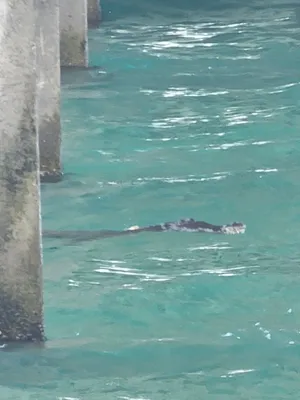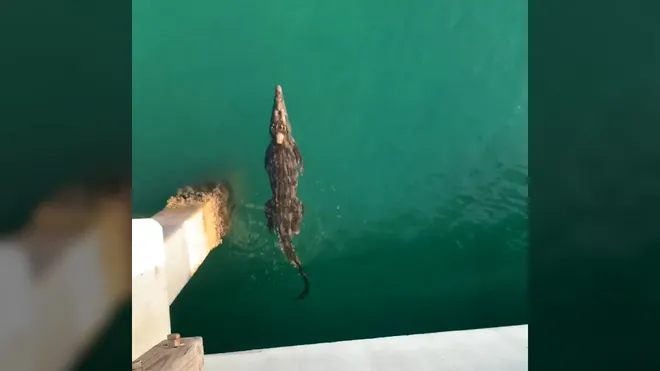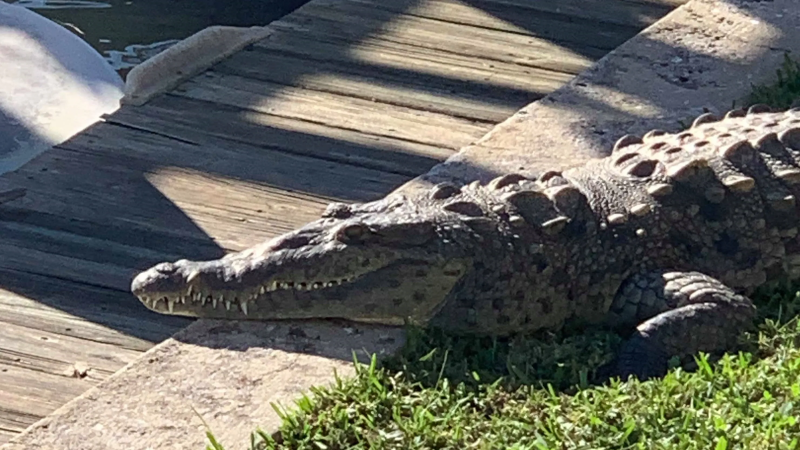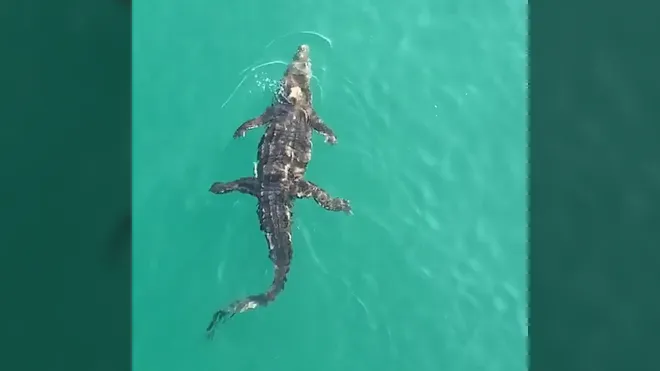Watch: 9-foot crocodile closes Florida beach to swimmers in 'very scary' sighting
A Florida beach had to be closed off to swimmers when a 9-foot crocodile was spotted heading toward a lifeguard.
Lifeguards in Pompano Beach in southern Florida were finishing up a morning swim and run on Monday morning when a woman on a pier spotted the crocodile, city spokesperson Sandra King told USA TODAY on Wednesday.
The woman yelled frantically to get the attention of the lifeguard at the back of the pack to warn him about the possible threat. Other lifeguards saw her efforts and were able to warn the man, who made it safely out of the water, along with other swimmers.
The lifeguards closed the beach off to swimming, and the crocodile headed for the shade in water under the pier for the rest of the day.
"The lifeguards are trained for any emergency like a shark or runaway boat, but in this case it was a crocodile!" King said. "They had never experienced something like this before, but they knew what to do."
'Just the sight of it was very scary'

The Florida Fish and Wildlife Conservation Commission responded to the scene and found that the crocodile had been previously tagged with GPS capabilities. King said a trapper with the agency told her that the reptile is a female roughly 9 feet long.
"Just the sight of it was very scary," King said.
Lifeguards reopened the beach Tuesday after an inspection of the 3-mile beach found no sign of the croc.
As of Wednesday morning, King had not heard back from the wildlife commission about the crocodile's most recent location.
Wildlife expert and University of Florida professor Frank Mazzotti told the South Florida Sun Sentinel that the crocodile likely came from an inlet either by swimming or walking over land to get there. He noted that these instances aren't totally unusual and the crocodile would likely return to where she came from on her own.

Wild Crocodiles: Only in Florida

Florida is the only place in the U.S. that American crocodiles live in the wild, according to the wildlife commission.
They are considered a conservation success story, as the population has grown to about 2,000 since 1975, when there were only a few hundred living adults. It is still considered a threatened species by the U.S. Fish and Wildlife Service.
The crocodile tends to be shy and stick to brackish or salt water, one if its main differences with alligators, which live in fresh water. Crocodiles also tend to be greyish green with pointed snouts, while alligators tend to be black with rounded snouts, according to SeaWorld.
King said she had never heard of a crocodile sighting like Monday's in the area. But she considers Pompano Beach an up-and-coming area that has attracted an increasing number of (human) visitors over the last few years.
"The crocodile is no different," King said. "We can't blame her. Having everyone out of the water, she had the beach to herself!"

Disclaimer: The copyright of this article belongs to the original author. Reposting this article is solely for the purpose of information dissemination and does not constitute any investment advice. If there is any infringement, please contact us immediately. We will make corrections or deletions as necessary. Thank you.



